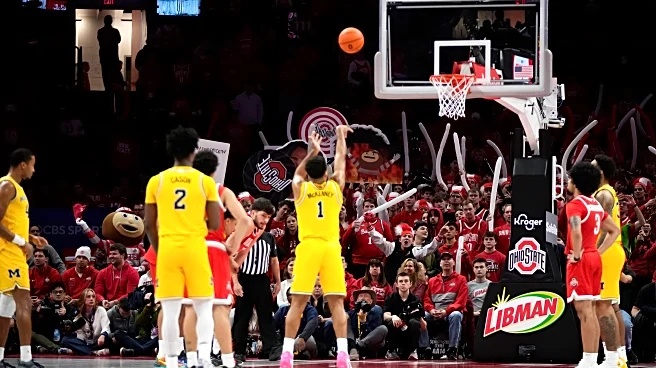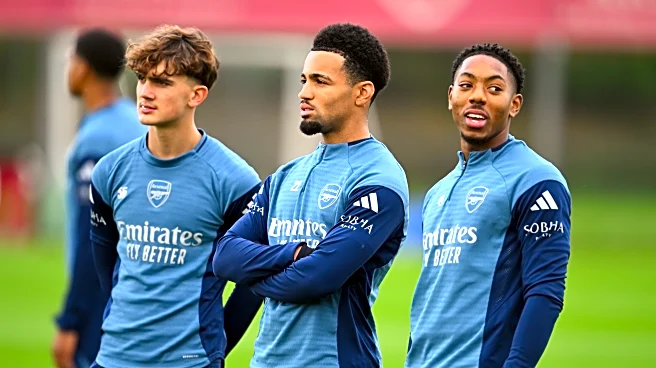What's Happening?
Sean Brosnan, the coach of Newbury Park High School's cross-country team, has significantly altered the team's trajectory by implementing unconventional training methods. When Brosnan took over the team, they had not qualified for a state championship in 25 years. Within three years, his coaching led them to become state champions. Brosnan's approach, detailed in his memoir 'Beyond Fast: How A Renegade Coach And His Unlikely High School Team Revolutionized Distance Running,' co-authored with Chris Lear and Andrew Greif, emphasizes total commitment from his runners. Brosnan's methods challenge traditional beliefs about running, focusing on innovative strategies to enhance performance.
Why It's Important?
Brosnan's success with Newbury Park High School highlights the impact of innovative coaching techniques in sports. His approach not only brought success to the team but also offers a new perspective on training and athlete development. This could influence other coaches and teams to reconsider traditional methods and adopt more personalized and rigorous training regimens. The transformation of the team under Brosnan's leadership underscores the potential for significant achievements through dedication and strategic innovation, potentially inspiring changes in high school sports programs nationwide.
What's Next?
The success of Brosnan's methods may lead to broader adoption of his training philosophies in other schools and sports disciplines. As his memoir gains attention, it could spark discussions among coaches and sports educators about the effectiveness of traditional versus innovative training methods. Brosnan's approach might also attract interest from collegiate programs looking to enhance their own training strategies. The ongoing dialogue about sports training could lead to a reevaluation of coaching practices, potentially influencing future generations of athletes.
Beyond the Headlines
Brosnan's story raises questions about the balance between traditional sports training and innovative approaches. It challenges the status quo, suggesting that success can be achieved through unconventional methods. This could lead to ethical discussions about the pressures placed on young athletes and the importance of fostering environments that prioritize their well-being alongside competitive success. Brosnan's emphasis on total commitment may also prompt debates about the demands of high-level sports training on student-athletes.










